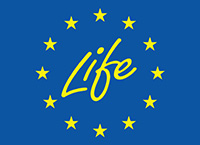Researching detection methods & digital solutions for products derived from new genomic techniques
From January 2024 to June 2027, IFOAM Organics Europe is part of a technical research project called DARWIN. It aims to develop, test, and validate no less than 9 new detection methods and new digital solutions for new GMO crops obtained through new genomic techniques (NGTs).
Why? Current detection methods were designed for old GMOs, which leaves a clear DNA signature in the modified genome. With NGTs, the changes to the DNA can be much more subtle and made within the existing DNA of the organism rather than introducing foreign DNA, and therefore these changes are more of a challenge to detect. So, without detection methods, there is a risk that plants and crops genetically modified using NGTs, i.e. new GMOs, will be able to spread throughout the supply chain of food and feed products.
This clearly has important implications not only for biosafety and the monitoring of these crops after the release into our environment, but also for freedom of choice for producers and consumers. Namely, detection methods underpin the testing, certification, and accurate labelling of our food products, in order to distinguish products made by, consisting of or containing new GMOs and those that are GM-free, including organic and non-GMO labels. Adequate detection methods are crucial to underpin traceability and labelling throughout the whole supply chain.
For more background information, read our previous article.
About the DARWIN project
The DARWIN project aims to develop, test, and validate 9 new detection methods for new GMO crops obtained through NGTs from 1 January 2024 to 30 June 2027. In full, it wants to “Transition to safe & sustainable food systems through new & innovative detection methods & digital solutions for plant-based products derived from new genomic techniques, under a co-creation approach”.
This is a crucial project for food and farming systems that want to remain GMO-free. So, as IFOAM Organics Europe we are part of the work package ‘Responsible Research and Innovation (RRI) Collaborative Stakeholder Ecosystem’. Together with our partners, we will bring together a diverse stakeholder group in a regulatory and policy roundtable in 2024. This will result in policy recommendations in 2025 (based on the roundtable’s results) and a workshop with key stakeholders in 2026.
To find out more about the DARWIN research project visit its website, read its recent press release and follow DARWIN on LinkedIn and X.

The work of IFOAM Organics Europe on this topic is co-financed by the LIFE programme of the European Union, under the Climate, Infrastructure and Environment Executive Agency (CINEA). This page only reflects the views of the authors and its sole responsibility lies with IFOAM Organics Europe. The CINEA is not responsible for any use that may be made of the information provided.

